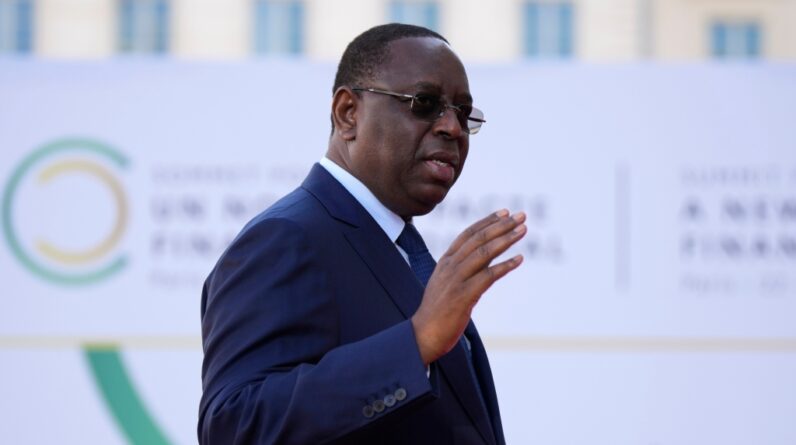
By Babacar Dione | Associated Press
DAKAR, Senegal — Senegalese President Macky Sall announced Monday evening that he will not run for a third term in next year’s elections, ending years of uncertainty about his political future that had helped fuel the deadly opposition protests last month.
Top opposition leader Ousmane Sonko had already called for more demonstrations around the West African country should Sall announce his intention to run again in February.
In a speech broadcast live on his official Facebook page, Sall argued that Senegal’s constitution would have allowed his candidacy despite being elected for a second term in 2019.
“Although I have the right, I felt that it is my duty not to contribute to the destruction of what I have built for this country,” Sall said. “I had said that the 2019 term was my last term. I know this decision will come as a surprise to all those who are friends with me. Senegal is more than me, it is full of people capable of taking Senegal to the next level “.
Sonko had long publicly called on the president to withdraw from the 2024 election, accusing Sall’s government of filing court cases against the opposition leader in an effort to sideline the competition ahead of the February election.
There have been widespread fears that Sall’s declaration about his political future could spark new waves of unrest across the West African nation, long seen as a bastion of stability in a politically turbulent region.
A wave of deadly protests already erupted last month over a court case in which Sonko was sentenced to two years in prison after being convicted of corrupting youths. The government says at least 16 people died in the unrest, while the opposition put the highest figure at 19.
Sall became Senegal’s president in 2012 after toppling an incumbent, Abdoulaye Wade, whose controversial decision to seek a third term sparked violent street demonstrations. Wade finally conceded defeat after a runoff between himself and Sall, his former protégé.
In 2016, Sall amended Senegal’s Constitution to establish a two-term presidential limit. His supporters argued that his first term under the previous constitution should not count. As recently as this past weekend, Sall was heard saying that the country’s Constitutional Council would allow his candidacy, fueling speculation that he would announce his candidacy for a third term.
In his speech on Monday, Sall asked the government to do everything possible to organize transparent elections in February. It was not immediately clear who could run on the ticket of Sall’s political party.
Some African presidents have already tried to stay in power in recent years by first amending their constitutions, including Ivory Coast’s Alassane Ouattara, who won a third term in 2020. Another, Alpha Conde of Guinea, also won a third term that same year, but he didn’t stay long: a military coup removed him from power less than a year later.
Bolle Fall, who works as a guard in the Plateau district of Dakar, near the presidency, said he hoped Sall would win a third term.
“What I want is to let it be,” Fall said, expressing concern about recent opposition protests that have shut down local businesses for days at a time. Influencing the youth to “attack people, break shops, prevent people from working, is not good… we have to be civilized”, he added.
Associated Press writers Krista Larson and Zane Irwin contributed.
[ad_2]
Source link





